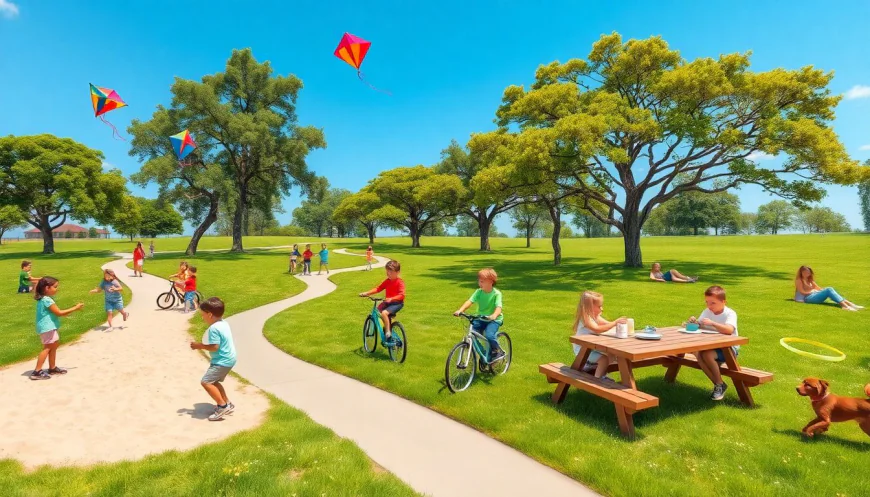Ultimate Guide to Kids Activities: Fun and Educational Ideas for Every Age
Keeping kids busy can feel like a full-time job, but it’s more than just fun. Engaging children in different activities is key to helping them grow, learn, and build strong bonds. Whether it’s running outside, doing crafts, or playing games, the right activities can boost their physical health, spark creativity, and develop social skills. Choosing age-appropriate and safe options means kids stay motivated and happy while exploring new things every day.

Benefits of Engaging Kids in Activities
Physical Development
Active play isn’t just about fun—it's essential for building muscle, coordination, and overall health. Regular physical activity helps kids grow strong and keeps weight in check. According to health experts, children who stay active are less likely to become obese or develop health issues later in life. So, making movement a part of their daily routine matters.
Cognitive Growth
Activities like puzzles, building blocks, or storytelling stimulate minds. They encourage kids to think critically, solve problems, and get creative. Educational studies show that hands-on tasks and play-based learning help children understand new concepts faster. The more they explore, the sharper their problem-solving skills become.
Social Skills and Emotional Well-being
Group activities teach kids how to communicate, cooperate, and share. Working in teams builds confidence and empathy. Experts in child development say that social play helps kids manage emotions and develop resilience. These skills aren’t just for childhood—they stay with them for life.
Popular Kids Activities by Age Group
Toddler Activities (1-3 years)
Sensory Play
Sensory activities are perfect for tiny explorers. Think water tables, play dough, or textured fabrics. They boost senses and encourage kids to investigate their world. Sensory play also helps hone fine motor skills like grasping and squeezing.
Fine Motor Skills
Building with soft blocks or stacking rings strengthens tiny hand muscles. Simple puzzles or threading beads are great too. Always pick safe, non-toxic materials to keep little hands and mouths happy.
Language Development
Storytime is magical—reading picture books or singing nursery rhymes sparks language growth. Repeating words and sounds makes children more confident. Incorporate fun songs or rhymes to make learning feel like a game.
Preschool Activities (3-5 years)
Artistic and Creative Projects
Coloring, finger painting, or making crafts from recyclable items open brains and foster imagination. Kids express feelings through art, which helps develop their fine motor skills and creativity.
Outdoor Adventures
Nature walks, collecting leaves, or playing tag can turn any backyard or park into a mini adventure zone. These activities promote curiosity and physical exercise. Plus, fresh air keeps kids energized and healthy.
Educational Games
Simple board games or matching puzzles sharpen memory and logic. Group games also teach kids to follow rules and cooperate. They’re fun ways to build social skills while learning.
Early School Age Activities (6-9 years)
STEM Experiments
Start with easy science projects like mixing baking soda and vinegar or building simple robots with kits. These experiments ignite curiosity and introduce basic scientific ideas. Plus, they make learning fun.
Sports and Physical Activities
Soccer, swimming, or riding bikes make exercise enjoyable. The focus should be on skill-building and having a good time. Sports teach teamwork and discipline without feeling like a chore.
Reading and Storytelling
Create a mini book club or encourage kids to tell their stories. Reading develops vocabulary and comprehension. Creative storytelling boosts confidence and sparks new ideas.
Tweens and Teens Activities (10+ years)
Creative Arts and Crafts
DIY projects, video making, or photography let teens express themselves. These skills build confidence and can turn into hobbies or careers later.
Tech and Coding Skills
Coding classes, game development, or building websites grow technical abilities. Early exposure to these skills prepares teens for future jobs in the digital world.
Community Service and Leadership
Getting involved in volunteering or leading projects teaches responsibility. These activities help build compassion and a sense of purpose.
Implementing Successful Kids Activity Plans
Creating a Safe and Stimulating Environment
Childproof your space and supervise activities to prevent accidents. Designate a specific area for fun—making it easier for children to focus and stay safe.
Balancing Screen Time and Offline Activities
Follow pediatric guidelines to limit screen use. Encourage outdoor play or board games as balanced alternatives. Set specific times to make routines predictable.
Incorporating Learning into Fun
Combine education and play with themed activities like math scavenger hunts or language puzzles. It makes learning feel natural and enjoyable.
Tips for Busy Parents and Caregivers
Schedule activities regularly and include your children in planning. Use community centers, libraries, or online resources to discover new ideas and activities.
Innovative Kids Activities and Trends
Virtual and Augmented Reality Experiences
Immersive games and learning apps take kids on adventures without leaving home. These tools can make subjects like history or science exciting and memorable.
Eco-Friendly and Sustainable Activities
Getting kids involved in planting trees, recycling projects, or eco-crafts teaches sustainability early. It’s a fun way to teach responsibility toward the environment.
Cultural and International Activities
Cooking dishes from around the world or celebrating different festivals exposes children to global cultures. These experiences foster respect, understanding, and curiosity.
Conclusion
Offering a variety of fun, age-appropriate activities supports a child’s overall growth. It boosts their health, sparks imagination, and helps build important social skills. As parents and caregivers, creating opportunities for play and learning should be a daily priority. Keep exploring new activities, and watch your children thrive, evolve, and find joy in every moment.



 VARSHITHA
VARSHITHA